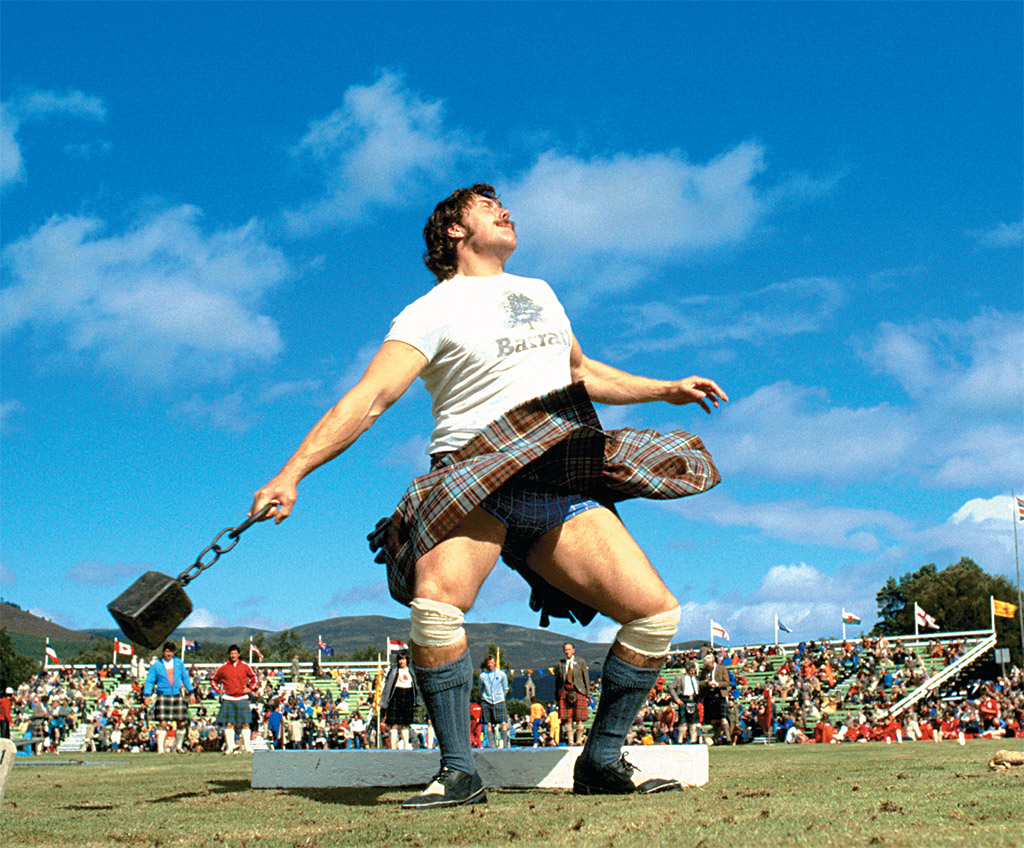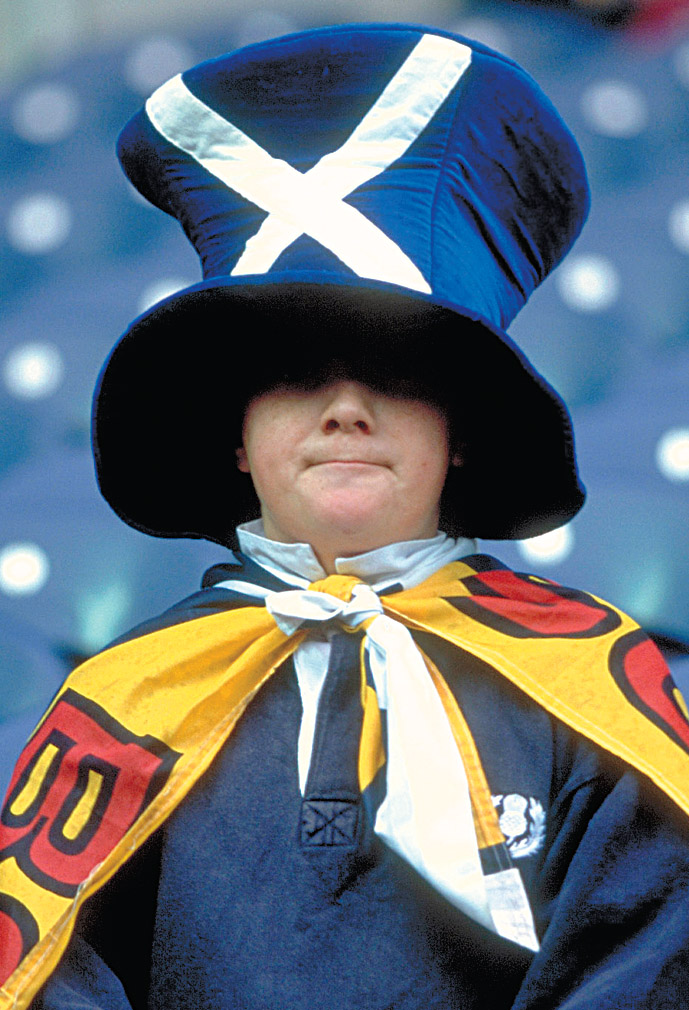
FROM ALABAMA TO CALIFORNIA to Singapore to Thailand to, of course, Scotland, the societies of Scots, descendants of Scots, families of Scots, and admirers of Scotland and its culture are sprinkled around the world.
In the United States, St. Andrew’s societies dot the map. Many were founded in the 19th century to aid the settlement of Scottish immigrants. The one in New York City claims to be the oldest. Its predecessor society, the Scots Society of New York [City], was founded in 1744. The St. Andrew’s Society of Washington, D.C., is only a little younger, founded in 1760 in neighboring Alexandria, Va. Other St. Andrew’s societies have been around for just a decade or so.
The things they all have in common are fostering—and enjoying—Scottish traditions and culture and doing charitable works. Societies may also support pipe and drum corps or give scholarships for Scottish dancing or Scottish studies.
Most societies have full calendars of activities, beginning each year with a Robert Burns supper in late January on the weekend nearest the Scottish bard’s birthday, January 25. The ceremonial centerpiece on the menu is the haggis, Scotland’s national dish—a necessary mainstay of the menu. Toasted oatmeal, onions, suet, minced liver and seasonings, mixed together and boiled in a sheep’s stomach, yield a much-maligned but tasty main dish.
April brings Tartan Day on the 6th, a date officially recognized by the U.S. Senate since 1998 as “a celebration of the contribution generations of Scots-Americans have made to the character and prosperity of the United States.” Each society likely holds an event on St. Andrew’s Day, November 30, and a Christmas get-together.
Other events that the societies participate in, sponsor or attend are ceilidhs, Highland games, parades, special church services marked by bagpipe music, formal parties where the gentlemen wear dress kilts, golf tournaments, fundraisers, trips and single-malt tastings—the list differs from group to group.
Membership requirements also vary. At least one, in Washington, D.C., accepts only men, though it has many activities that include spouses and families. Some societies insist that a prospective member prove he or she was born in Scotland, or document descent from someone who was. Others have different levels of membership for the Scottish or the merely interested. Like many social clubs, St. Andrew’s societies may require that prospective members be sponsored by members in good standing. Sometimes they offer to help prospects meet members who will sponsor them. Annual dues are modest, usually less than $50, but the enjoyment to be had and the good works to be done are great—all for the love of Scotland.
For a list of St. Andrew’s societies in the United States, along with contact information, see www.scottish-coalition.org. The Web site also includes other Scottish-American organizations.
[caption id="HandsAcrosstheSea_img1" align="aligncenter" width="1024"]

[caption id="HandsAcrosstheSea_img2" align="aligncenter" width="689"]

WWW.BRITIANONVIEW.CO
WHO WAS SAINT ANDREW?
Patron Saint of Scotland, Andrew was the first of Jesus’ 12 apostles. He is associated with evangelism because he brought his brother, Simon Peter, to Jesus. Andrew is said to have been crucified on an X-shape cross—a saltire—in Greece where he had been preaching. It’s also said that he preached from his cross for two days.
His association with Scotland goes back to the year AD 345 when Saint Regulus brought relics of the saint to the Fife coast and founded the settlement of Saint Andrew. There is a story that in the 8th century, Pictish King Oengus MacFergus prayed to Saint Andrew when he faced a large invading army. An X-shape cross floated across the sky, and MacFergus triumphed in battle. The grateful king declared Andrew the patron saint of his Kingdom of Fortrenn. After Robert the Bruce’s victory over the English at the Battle of Bannockburn in 1314, the Declaration of Arbroath named Andrew as the official patron saint of Scotland. He’s also the patron saint of Russia, fishermen, single women, singers and the Roman Catholic Diocese of Grand Rapids, Mich., to name a few.
Saint Andrew’s cross, the saltire, was emblazoned on Scotland’s flag in 1385, white on a blue field, like the cloud MacFergus saw. The saltire was combined with the upright red cross of Saint George, patron saint of England, to form the Union Jack, the flag of Great Britain, in 1606, after the accession of James VI of Scotland to the English throne. The red saltire cross of Saint Patrick, Ireland’s patron saint, was incorporated in 1801, after the Act of Union, to form the United Kingdom flag we see today.
Highland Games
For a concentrated dose of Scotland without crossing the pond, Highland games are the thing. With fiddling, piping, caber tossing, sheep dog trials, dancing, food, kilts and clans, they’re hard to beat. Here are just a few of the principal gatherings this season:
May 13-15: Houston Highland Games and Celtic Festival. www.houstonhighlandgames.com
June 11: Kansas City Scottish Highland Games, Wyandotte County Fairgrounds, I-70 and I-435, west of downtown Kansas City, Kan. www.kcscottishgames.org
June 25-26: San Diego Scottish Highland Games and Gathering of the Clans. www.sdhighlandgames.org
July 7-10: Grandfather Mountain Highland Games, MacRae Meadows on Grandfather Mountain, near Linville, N.C. www.gmhg.org
July 21-24: Virginia Scottish Games and Gathering of the Clans, Alexandria. www.vascottishgames.org
July 30-31: Pacific Northwest Scottish Highland Games and Clan Gathering, King County Fairgrounds, Enumclaw, Wash., near Seattle. www.sshga.org
August 6: St. Andrew’s Society of Detroit Highland Games, Historic Greenmead, Livonia, Mich.—oldest continuous games in North America. www.highlandgames.com
August 13-14: Rocky Mountain Highland Games, Highlands Ranch, Colo. www.scottishgames.org
August 27: Celtic Highland Games of the Quad Cities, Mississippi Valley Fairgrounds, Davenport, Iowa. www.celtichighlandgames.org
September 9-11: Lingonier Highland Games, Lingonier, Pa. www.lingoniergames.org
September 23-25: Alabama Highland Games, Alabama Shakespeare Festival Grounds, Montgomery, Ala. www.alabamahighlandgames.com
September 23-25: New Hampshire Highland Games, Hopkinton State Fairgrounds, Contoocook, west of Concord. www.nhscot.org
October 15-16: Stone Mountain Highland Games, Stone Mountain Park, northeast of Atlanta, Ga. www.smhg.org
For more, see the Web site of the Association of Scottish Games and Festivals, www.asgf.org. Events are conveniently listed by state and by date.





Comments